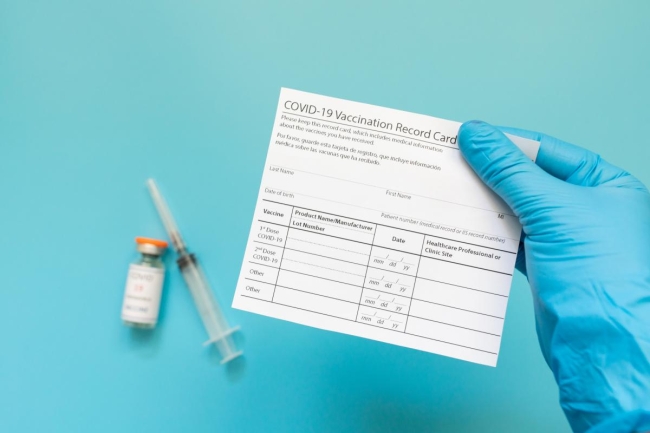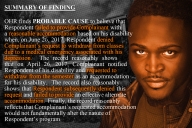You have /5 articles left.
Sign up for a free account or log in.

Olena Hololobova/iStock/Getty Images Plus
Stockton University in New Jersey is one of hundreds of colleges requiring students get vaccinated against COVID-19 before returning to campus this fall. Students have until Aug. 1 to provide the university with proof of vaccination status or to request an exemption on medical or religious grounds.
There’s an incentive for Stockton students to submit their paperwork early: students who submitted proof of vaccination by July 8 were eligible for a drawing to win a year of free tuition or room and board, and university officials are planning for two additional drawings in August.
But just two weeks before the Aug. 1 deadline, the percentage of students who have submitted proof of vaccination or an exemption request is hovering right around a third. Stockton officials report that about 90 percent of the 3,500 students who have submitted documentation so far have provided proof of vaccination status, while about 10 percent have requested an exemption.
That leaves about two-thirds of students unaccounted for. The unanswered question is whether these students are waiting until closer to the deadline to verify their vaccination status or whether they’re choosing not to get vaccinated.
"Anyone who has required the vaccine is facing the dilemma: How many are vaccinated, and what is the next step for those who don’t get vaccinated?" said Susan Davenport, Stockton’s executive vice president and chief of staff.
“We’re very concerned about disrupting and further impacting any of these students’ education, but we also really believe in science and we’re committed to having an open and healthy campus,” Davenport said.
“Anecdotally,” she said, “what we’re hearing is students are waiting us out a bit. Do we really mean it?”
Stockton is in the process of working with the New Jersey health department to link the university’s electronic health records to a statewide vaccination database, which will give the university a better sense of how many students who haven’t submitted proof have in fact received the vaccination. About 98 percent of Stockton’s students come from New Jersey, so it’s a fair expectation that most students who have been vaccinated were vaccinated within the state.
In the meantime, Stockton is not alone in facing a waiting game -- and a bit of a guessing game -- when it comes to seeing what compliance with this new requirement will look like.
Nationally, young adults age 18 to 29 have the lowest COVID vaccination rates of any adults. A study published in the Journal of Adolescent Health this week by researchers at the University of California, San Francisco, found that close to a quarter (24 percent) of young adults age 18 to 25 expressed hesitancy about getting a COVID vaccine, with their most common concerns centering around safety and possible side effects.
Officials at several other colleges with COVID-19 vaccination requirements stressed it is still early to draw conclusions about student uptake of vaccinations.
“We still have a few weeks until the deadline,” said Joe Cardona, a spokesman for Rowan University, a public university in New Jersey, which is crediting students' accounts $500 or, for on-campus students, $1,000, if they get the vaccine. “As of now, about 30 percent of the students have responded. This is pretty normal when collecting any type of documents. There is a rush at the beginning and a rush at the deadline.”
About a third of students at New Jersey City University, which is also a public institution, have submitted proof of vaccination since the university began collecting the information about two weeks ago, said Jodi Bailey, vice president of student affairs.
“I’m pretty pleased with the numbers we’ve received so far: in the last two weeks we’ve had 1,000 students a week putting their paperwork in,” Bailey said.
At Drew University, a private institution in the state, about half of students have submitted proof of COVID vaccination or requested an exemption in advance of an Aug. 15 deadline, according to Frank Merckx, vice president of enrollment and campus life.
“I’m not overly concerned now,” said Merckx, who noted that about 20 percent of the college’s population is international and many may not have access to vaccines. “If the needle has not moved at all in two weeks, it’s going to be a lot of staff members calling to say, ‘You have to hand in our paperwork.’”
Another variable will be the percentage of students who ultimately request exemptions across different institutions.
Montclair State University, a New Jersey public institution, reports that 70.6 percent of students who have registered for fall have provided proof of vaccination or been granted exemptions. Andrew Mees, a university spokesman, said just over 300 out of about 18,000 students have obtained medical or religious exemptions.
Seton Hall University, a Roman Catholic university also in New Jersey, is requiring students, faculty and staff to submit a declaration of their vaccination status. On Thursday the university reported data from about 87.1 percent of members of the university community who have responded, of which 74.9 percent report being fully vaccinated, 4.2 percent report having received the first of two injections, 6.9 percent report planning to get vaccinated and 14.1 percent report they will be seeking an exemption.
Some colleges, such as William Paterson University, a public university in New Jersey, have gotten a fuller sense of the picture of their students' vaccination status by accessing state-level immunization databases (as Stockton also hopes to do).
"At William Paterson University to date, 61 percent of our students are fully or partially vaccinated, and the number is steadily increasing as expected," said Mary Beth Zeman, a university spokeswoman. "We have been able to access data from the New Jersey Immunization and Information System to verify who has been vaccinated; for those students whose data is not in the system, we have created a vaccination portal through which they can upload their vaccination card."
In Maryland -- where the entire public university system is requiring vaccines for students, faculty and staff -- officials at Salisbury University also are linking a state-level health information exchange and immunization database.
“In order to gather information through these systems, we need students to complete a consent form, and we are not yet at 100 percent on those consents, which means our information is not entirely representative,” said Tim Brennan, a Salisbury spokesman. “We currently have information on just over 4,200 students from Maryland and Washington, D.C., including nearly 80 percent of our students who will live on campus this fall. Of those students nearly 80 percent are vaccinated. We have not begun to collect vaccination information from out-of-state students.”
The University of Maryland, Baltimore County, projects that its current student vaccination rate is 79 percent, a figure that’s derived from data it received from the state health exchange. The actual percentage of students who have submitted vaccine documentation or an exemption form is 55 percent.
“The difference between the projected rate and documented rate has prompted one of our current focus areas: encouraging students, faculty and staff to report their vaccinations,” said Dinah Winnick, a university spokeswoman. Winnick said the university is running a student-designed social media campaign -- “It Takes 5 to Verify” -- emphasizing how quick and easy it is for students to verify their vaccination status. The university is also holding weekly drawings for $100 in points that can be used for food purchases, as well as a grand prize drawing the week of Aug. 9 for a $500 scholarship for students or a free parking pass for employees.
Colleges have various carrots and sticks they can wield in encouraging compliance.
Dory Devlin, a spokeswoman for Rutgers University of New Jersey -- which was the first college in the nation to announce a COVID vaccine requirement -- said Rutgers officials are reminding students that those who are not vaccinated will not be able to attend classes. Students who have provided documentation of their vaccination are eligible to win one of 50 $500 gift cards from the campus technology store.
Devlin said Rutgers administrators estimate that more than 70 percent of students are vaccinated but did not provide the percentage who have actually uploaded documentation.
Wake Forest University in North Carolina sent a message to students Wednesday warning that the university will begin removing students from enrolled courses and assigned housing if they do not submit proof of vaccination or an exemption request by Aug. 1.
"We cannot guarantee that you will be able to re-enroll in the same courses and receive the same housing assignment once removed," the message states.
Goucher College, a private college in Maryland, had a deadline of this past Monday, July 12, for students to submit their vaccine paperwork. Aarika Camp, Goucher’s vice president for student affairs and dean of students, said she does not yet have an estimate of the percentage of students who have submitted proof of vaccination.
Goucher on Monday will start putting holds on the accounts of students who have not submitted documentation. University administrators will also consider unenrolling students from classes or canceling their housing assignments depending on those students’ individual communications with the college, Camp said.
“I know some schools are incentivizing vaccines by giving out gifts,” Camp said. “Our incentive is to come back to a safe, functioning campus, because we know our students want that college experience. That’s not a knock to anyone else, but that is what the real carrot is -- to have that college experience that so many of them have wanted.”








